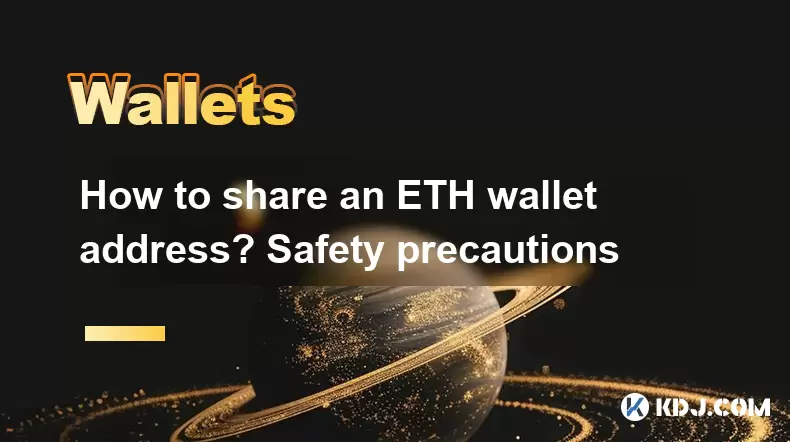-
 Bitcoin
Bitcoin $115000
0.12% -
 Ethereum
Ethereum $3701
4.50% -
 XRP
XRP $3.081
2.99% -
 Tether USDt
Tether USDt $0.0000
-0.01% -
 BNB
BNB $767.9
1.45% -
 Solana
Solana $169.5
3.13% -
 USDC
USDC $0.9999
0.01% -
 Dogecoin
Dogecoin $0.2106
4.30% -
 TRON
TRON $0.3334
1.62% -
 Cardano
Cardano $0.7564
2.54% -
 Stellar
Stellar $0.4165
0.76% -
 Hyperliquid
Hyperliquid $38.75
0.25% -
 Sui
Sui $3.593
3.00% -
 Chainlink
Chainlink $17.08
3.59% -
 Bitcoin Cash
Bitcoin Cash $573.6
4.35% -
 Hedera
Hedera $0.2508
-0.84% -
 Avalanche
Avalanche $23.07
6.46% -
 Ethena USDe
Ethena USDe $1.001
-0.02% -
 Litecoin
Litecoin $120.8
8.17% -
 UNUS SED LEO
UNUS SED LEO $8.943
-0.32% -
 Toncoin
Toncoin $3.400
-5.60% -
 Shiba Inu
Shiba Inu $0.00001255
1.54% -
 Uniswap
Uniswap $9.908
6.32% -
 Polkadot
Polkadot $3.718
2.10% -
 Monero
Monero $303.0
-0.74% -
 Dai
Dai $0.9999
-0.02% -
 Bitget Token
Bitget Token $4.392
0.91% -
 Cronos
Cronos $0.1403
6.31% -
 Pepe
Pepe $0.00001076
1.13% -
 Aave
Aave $267.2
1.80%
How to share an ETH wallet address? Safety precautions
To safely share your ETH wallet address, use secure channels, verify recipients, and double-check the address to prevent errors and protect your assets.
May 15, 2025 at 12:56 pm

Sharing an Ethereum (ETH) wallet address is a common practice among cryptocurrency users, whether for receiving payments, donations, or simply sharing with friends and family. However, it's crucial to take safety precautions to protect your assets. This article will guide you through the process of sharing your ETH wallet address safely and effectively.
Understanding Your ETH Wallet Address
Before you share your ETH wallet address, it's important to understand what it is. An ETH wallet address is a unique string of characters that serves as your public identifier on the Ethereum blockchain. It's where others can send ETH or other Ethereum-based tokens to you. Typically, an ETH address starts with "0x" followed by a series of alphanumeric characters.
To find your ETH wallet address, you'll need to access your wallet. Depending on the type of wallet you use (software, hardware, or paper), the steps may vary slightly. For most software wallets like MetaMask or Trust Wallet, you can find your address by:
- Opening the wallet application
- Navigating to the "Receive" or "Deposit" section
- Copying the address displayed
Methods to Share Your ETH Wallet Address
There are several ways to share your ETH wallet address, each with its own set of considerations:
Direct Sharing
Direct sharing involves sending your ETH wallet address directly to the recipient through a secure channel. This could be via email, messaging apps, or even in person. When sharing directly, ensure that the communication channel is secure and that you trust the recipient.
- Open your wallet and copy your ETH address
- Paste the address into the secure communication channel
- Verify the address with the recipient to ensure no errors
QR Code
Many wallets allow you to generate a QR code for your ETH address. This can be a convenient way to share your address, especially in person or on mobile devices.
- Open your wallet and navigate to the "Receive" section
- Generate a QR code for your ETH address
- Share the QR code with the recipient, either by displaying it on your device or sending a screenshot
Public Sharing
Public sharing involves posting your ETH address on public platforms like social media, forums, or websites. While this can be useful for receiving donations or tips, it comes with increased risks.
- Copy your ETH address from your wallet
- Paste it into the public platform where you want to share it
- Be aware that anyone can see and use this address
Safety Precautions When Sharing Your ETH Wallet Address
Sharing your ETH wallet address can be safe if you follow certain precautions. Here are some key safety measures to consider:
Verify the Recipient
Before sharing your ETH address, verify the identity of the recipient. Ensure that you are sending your address to someone you trust and that the communication channel is secure.
Use Secure Channels
When sharing your ETH address, use secure communication channels. Avoid sharing your address over public Wi-Fi or unsecured networks, as these can be vulnerable to interception.
Double-Check the Address
Always double-check the ETH address before sending it. A single incorrect character can result in your funds being sent to the wrong address, which could be irretrievable.
Avoid Phishing Scams
Be cautious of phishing attempts. Scammers may try to trick you into sharing your ETH address or other sensitive information. Always verify the authenticity of the request before responding.
Limit Public Exposure
If you choose to share your ETH address publicly, limit the exposure. Consider using a new address for each transaction to enhance your privacy and security.
Best Practices for Managing Your ETH Wallet
In addition to sharing your ETH address safely, it's important to manage your wallet effectively. Here are some best practices:
Use a Dedicated Wallet for Receiving
Consider using a dedicated wallet for receiving funds. This can help you keep your main wallet more secure and make it easier to track incoming transactions.
Regularly Update Your Wallet Software
Keep your wallet software up to date. Updates often include security enhancements that can protect your funds from new threats.
Enable Two-Factor Authentication
If your wallet supports it, enable two-factor authentication (2FA). This adds an extra layer of security to your wallet, making it harder for unauthorized users to access your funds.
Keep Your Private Key Secure
Your private key is the most sensitive piece of information related to your ETH wallet. Never share it with anyone, and store it in a secure location, such as a hardware wallet or a safe.
Common Mistakes to Avoid
When sharing your ETH wallet address, there are several common mistakes that you should avoid:
Sharing Your Private Key
Never share your private key with anyone. Your private key is what allows you to access and control your ETH funds. Sharing it is equivalent to giving someone else control over your wallet.
Using the Same Address Repeatedly
Using the same ETH address for multiple transactions can compromise your privacy. Generate a new address for each transaction to enhance your anonymity.
Ignoring Transaction Fees
When receiving ETH, be aware of transaction fees. Some wallets may charge fees for receiving funds, so make sure you understand the fee structure of your wallet.
Not Verifying the Address
Failing to verify the ETH address before sending it can lead to funds being sent to the wrong address. Always double-check the address to ensure accuracy.
Frequently Asked Questions
Q: Can I reuse my ETH wallet address?
A: While it is technically possible to reuse your ETH wallet address, it is generally recommended to use a new address for each transaction to enhance your privacy and security. Many wallets allow you to generate new addresses easily.
Q: Is it safe to share my ETH wallet address on social media?
A: Sharing your ETH wallet address on social media can be risky due to the public nature of these platforms. If you choose to do so, be aware that anyone can see and use your address, and consider using a new address for each transaction to limit exposure.
Q: What should I do if I accidentally share my private key?
A: If you accidentally share your private key, you should immediately transfer any funds to a new wallet with a new private key. Consider your old wallet compromised and do not use it again.
Q: How can I ensure the security of my ETH wallet?
A: To ensure the security of your ETH wallet, use a reputable wallet provider, keep your software updated, enable two-factor authentication if available, and never share your private key. Additionally, consider using a hardware wallet for added security.
Disclaimer:info@kdj.com
The information provided is not trading advice. kdj.com does not assume any responsibility for any investments made based on the information provided in this article. Cryptocurrencies are highly volatile and it is highly recommended that you invest with caution after thorough research!
If you believe that the content used on this website infringes your copyright, please contact us immediately (info@kdj.com) and we will delete it promptly.
- Velo Universe, DEX, and DeFi Security: Navigating the Future of Decentralized Trading
- 2025-08-05 09:25:13
- Bitget Wallet Revolutionizes Solana with Gas-Free Transactions: A New Era for DeFi
- 2025-08-05 09:25:13
- Ozak AI, Crypto Boom, and ROI Potential: Is This the Next Big Thing?
- 2025-08-05 09:25:24
- Solana's ETF Hopes & the All-Time High Chase: Is SOL Set to Soar?
- 2025-08-05 09:25:24
- Coinbase's Brian Armstrong and the Art of Focused Work: A Deep Dive
- 2025-08-05 09:25:30
- Uniswap Price Prediction: Bullish Reversal on the Horizon?
- 2025-08-05 09:25:30
Related knowledge

How to add TRC20 token to Trust Wallet?
Aug 04,2025 at 11:35am
Understanding TRC20 and Trust Wallet CompatibilityTrust Wallet is a widely used cryptocurrency wallet that supports multiple blockchain networks, incl...

What is a watch-only wallet in Trust Wallet?
Aug 02,2025 at 03:36am
Understanding the Concept of a Watch-Only WalletA watch-only wallet in Trust Wallet allows users to monitor a cryptocurrency address without having ac...

Why can't I connect my Trust Wallet to a DApp?
Aug 04,2025 at 12:00pm
Understanding DApp Connectivity and Trust WalletConnecting your Trust Wallet to a decentralized application (DApp) is a common process in the cryptocu...

How to fix a stuck pending transaction in Trust Wallet?
Aug 03,2025 at 06:14am
Understanding Why Transactions Get Stuck in Trust WalletWhen using Trust Wallet, users may occasionally encounter a pending transaction that appears t...

What is a multi-coin wallet in Trust Wallet?
Aug 03,2025 at 04:43am
Understanding Multi-Coin Wallets in Trust WalletA multi-coin wallet in Trust Wallet refers to a digital wallet that supports multiple cryptocurrencies...

How to switch between networks in Trust Wallet?
Aug 02,2025 at 12:36pm
Understanding Network Switching in Trust WalletSwitching between networks in Trust Wallet allows users to manage assets across different blockchains s...

How to add TRC20 token to Trust Wallet?
Aug 04,2025 at 11:35am
Understanding TRC20 and Trust Wallet CompatibilityTrust Wallet is a widely used cryptocurrency wallet that supports multiple blockchain networks, incl...

What is a watch-only wallet in Trust Wallet?
Aug 02,2025 at 03:36am
Understanding the Concept of a Watch-Only WalletA watch-only wallet in Trust Wallet allows users to monitor a cryptocurrency address without having ac...

Why can't I connect my Trust Wallet to a DApp?
Aug 04,2025 at 12:00pm
Understanding DApp Connectivity and Trust WalletConnecting your Trust Wallet to a decentralized application (DApp) is a common process in the cryptocu...

How to fix a stuck pending transaction in Trust Wallet?
Aug 03,2025 at 06:14am
Understanding Why Transactions Get Stuck in Trust WalletWhen using Trust Wallet, users may occasionally encounter a pending transaction that appears t...

What is a multi-coin wallet in Trust Wallet?
Aug 03,2025 at 04:43am
Understanding Multi-Coin Wallets in Trust WalletA multi-coin wallet in Trust Wallet refers to a digital wallet that supports multiple cryptocurrencies...

How to switch between networks in Trust Wallet?
Aug 02,2025 at 12:36pm
Understanding Network Switching in Trust WalletSwitching between networks in Trust Wallet allows users to manage assets across different blockchains s...
See all articles

























































































